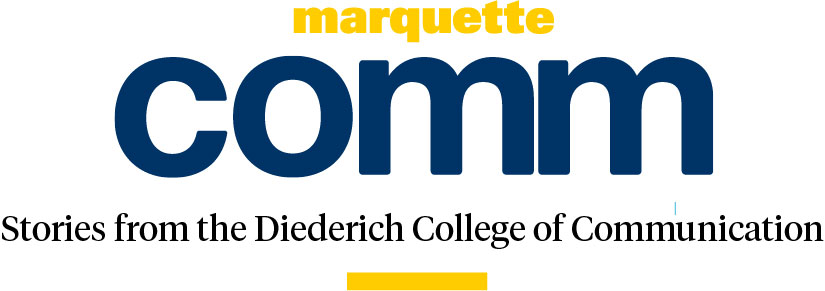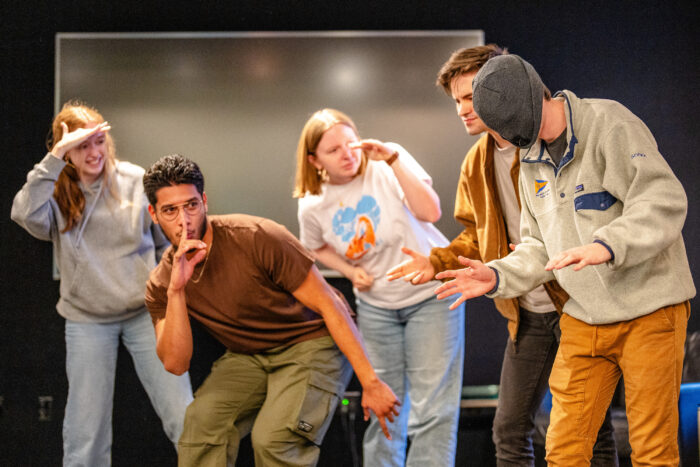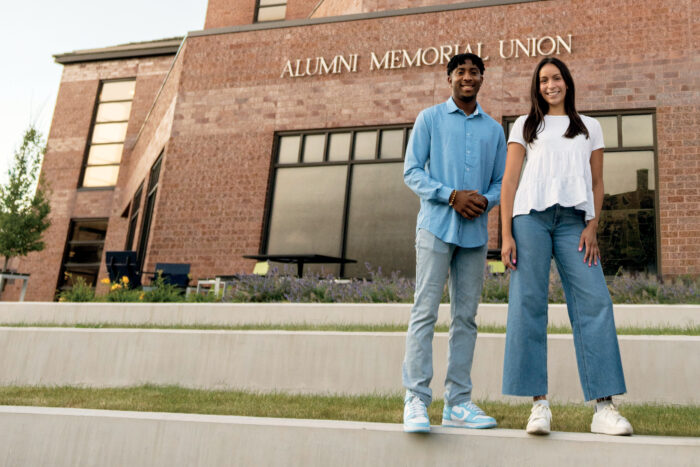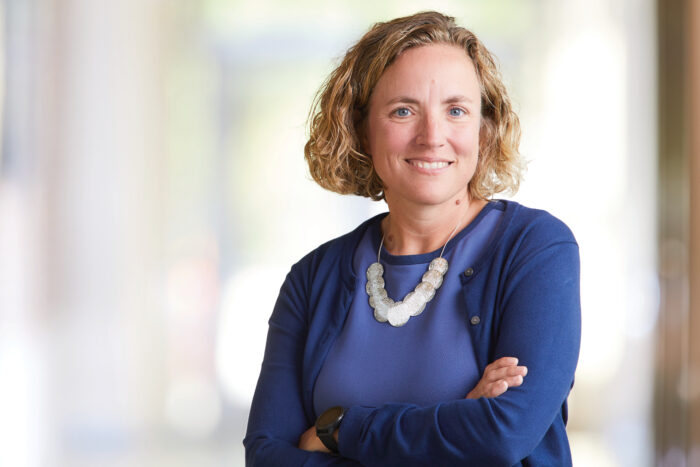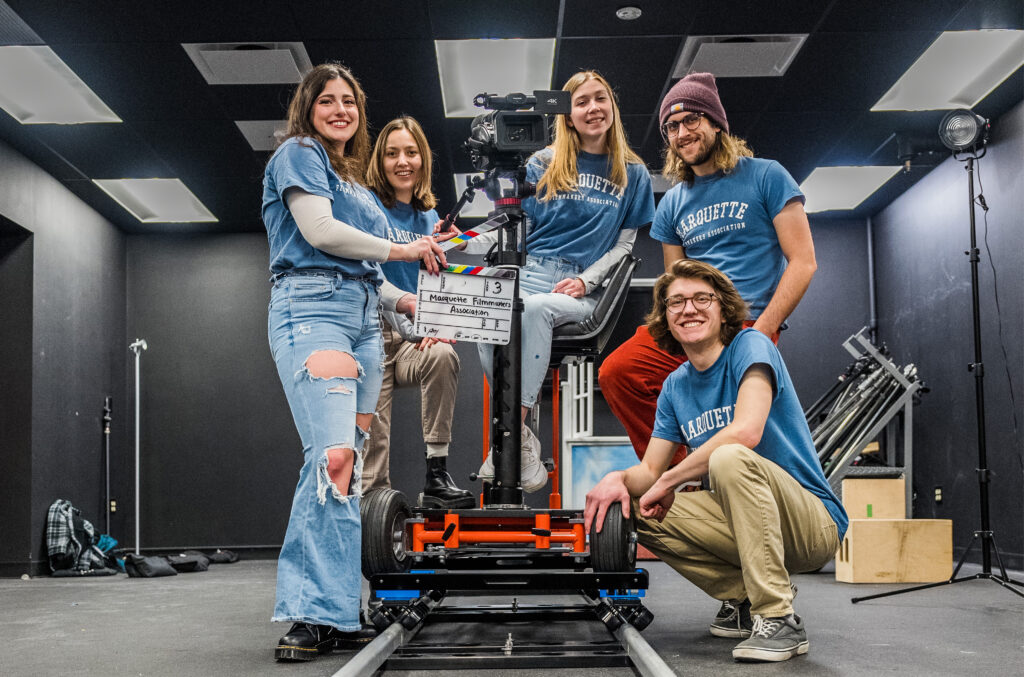
The two-minute trailer for “Diffraction” might give you goose bumps. The tension builds in scenes spliced together to show a young university janitor discovering a professor’s dark secret: creating weapons for mercenaries.
The trailer is as polished as the previews you would see in theaters. But this film stars Marquette students and was filmed across campus by a mostly student production team working closely with writer-producer Kris Holodak, associate professor of digital media and performing arts. And the 90-minute feature is just one example of the flourishing film scene on campus.
Geena Brumm, a junior majoring in digital media, edited the trailer for “Diffraction.” Brumm first got involved with the project during her Editing Techniques class in fall 2022, when students edited the first cut of the film. The following semester, Brumm’s Sound Design class worked on recording, editing and mixing the dialogue and sound effects. “Before this, I had only worked on smaller-scale school projects, so being able to take on something this big was very challenging in the best way possible,” says Brumm, part of a student cohort that made up 70% of the film’s cast and crew, alongside a handful of professionals.
“I was always interested in the sound aspects of moviemaking and storytelling.”
Sam Robertson, digital media student
“Diffraction” and smaller projects are woven into the Digital Media program curriculum, but the film scene at Marquette reaches beyond the digital media department. Students themselves are building a thriving film culture on campus, taking the lead in hosting pitch nights, coordinating a 24-hour short-film challenge and working together on their passion projects. In and out of the classroom, students turn to one another for collaboration and camaraderie on films that span topics and genres.
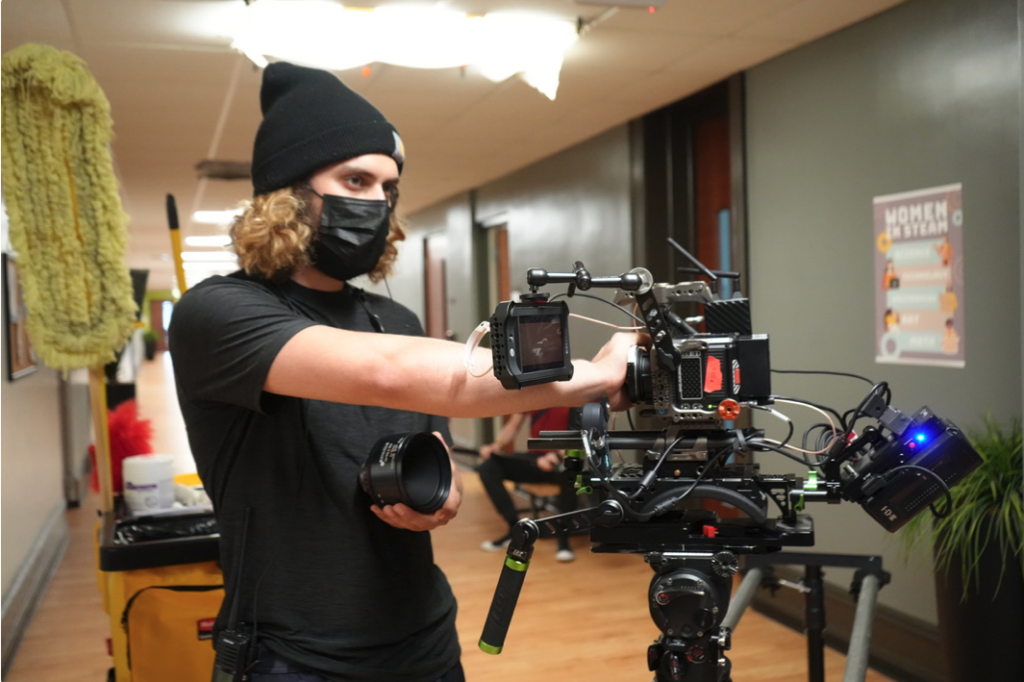
Students leading the charge
Sam Robertson, a junior majoring in digital media, came to Marquette with a lifelong fascination in film. “I was always interested in the sound aspects of moviemaking and storytelling. I loved watching movies and musicals as a kid,” Robertson says. At Marquette, he joined the Marquette Filmmakers Association, a student organization for people interested in all facets of film, from scriptwriting to sound design.
Robertson has competed twice in the association’s biannual 24-Hour Film Race. Teams of five to six students create short films in just one day and then share their work at a screening party the next night. “Everyone’s passion and their natural talents are shown when you’re under that time constraint,” says senior Margaret Weiner, past president of the association. “[You learn] who’s really good at setting up equipment and finding focus and shooting and using the camera, who’s really good at acting, who’s good at editing. You really have to trust the process and the people.”
The club also hosts pitch nights each semester for students to find collaborators. Some students pitch extracurricular projects, while others look for teams to help with their digital media class projects including the capstone, which is a 10-minute fiction or documentary film.
“The whole premise is to be like, ‘You’re in my doc class, you’re in my history class, we should work together,’” Weiner says. “Just to meet people who share the same passion and drive for creating films.”
“There are so many talented and creative individuals who want to work and create. No matter the project, they will show up and give it their all.”
Grace Koziol, digital media student
Students such as Grace Koziol, a junior majoring in digital media, are also finding support in the college and university-wide for their passion projects. In 2022, Koziol began writing the script for “Bad For Me,” a film depicting an abusive relationship over several decades. Koziol received a grant from the Honors College Undergraduate Summer Research Program and borrowed filming equipment from the College of Communication. She leaned on a team of more than 20 Marquette students who spent the summer working together on the film.
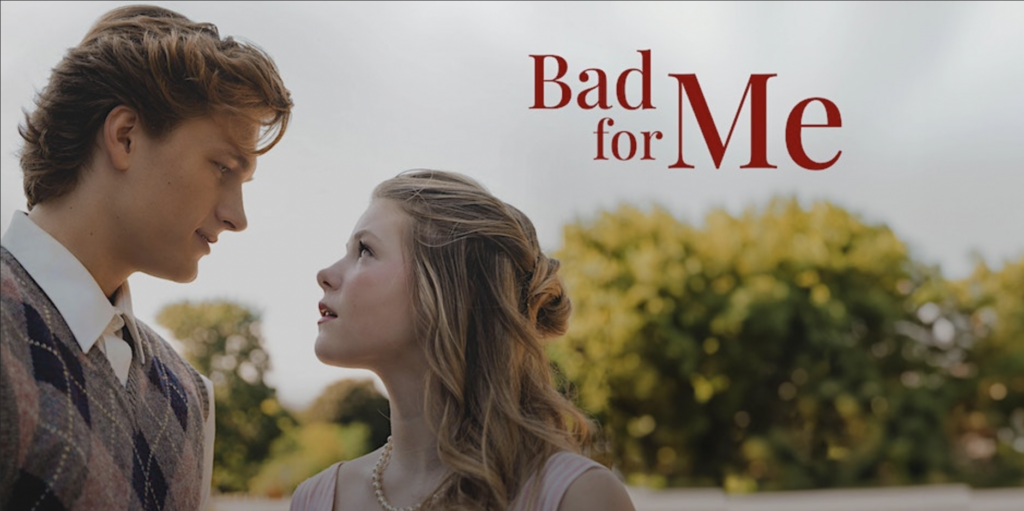
“They rallied around this project, poured their blood, sweat and tears into it, all because they believed in the message of the story,” Koziol says. The 26-minute short film’s screening event at Weasler Auditorium drew a sold-out crowd of 350 people, with proceeds supporting Pathfinders Milwaukee and Sojourner Family Peace Center.
Koziol’s next step is fundraising to turn her short film into a feature. “The general consensus is that people really wanted to see more, which was our exact goal,” she says.
A well-rounded curriculum
The digital media major offers a hands-on education in film. Students touch all aspects of the process, including scriptwriting, photography, video and audio production. “We’re looking to give them a good grounding to use the tools and the skills that they have to tell their own stories or their organization’s stories,” Holodak says. Many students receive internships at nonprofits and businesses, news stations or production companies.
The department hosts a student film festival in the spring, selecting a handful of short films to screen at an event judged by alumni and local filmmakers. Winners receive up to $150 to offset entry fees for other festivals around the country.
The department also coordinates a trip to Los Angeles, where students visit with industry professionals. Past trips included a live taping of “Access Hollywood,” a visit to a talent agency and a meeting with a postproduction sound company. “We’re trying to give them a taste of what all the opportunities are,” Holodak says.
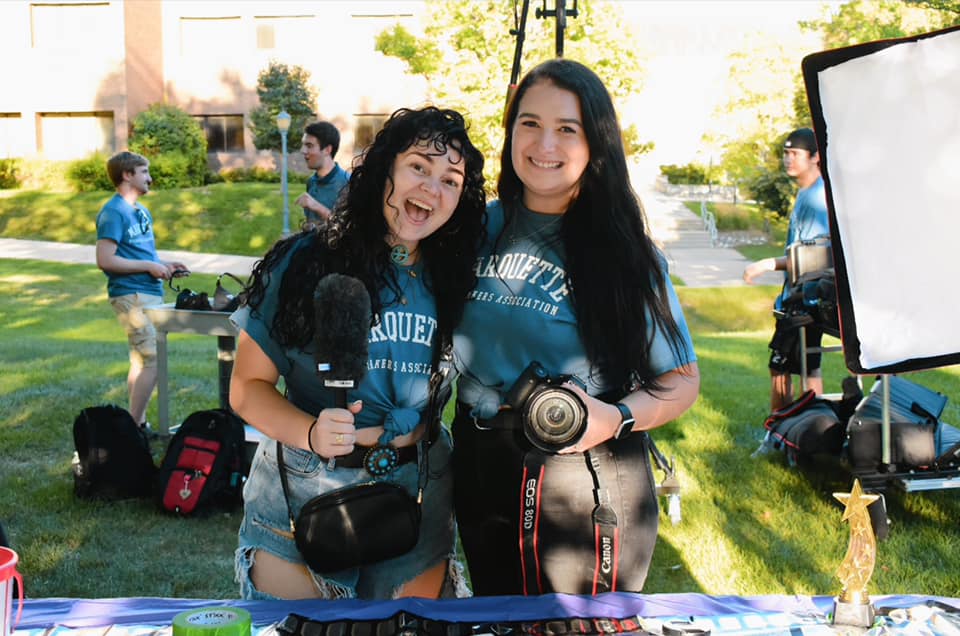
The digital media major’s basis in liberal arts ultimately gives students a more well-rounded education than they might receive in film school, Holodak says. “Being at a Jesuit school, we are challenging students to think about their place in the world, what they’re trying to say with [their] stories, and to understand the context of what they’re doing,” she says. “I think that makes for better filmmakers and better human beings.”
A springboard for opportunity
Marquette alumni have gone on to work with companies including Netflix, HBO and ESPN. Many work in digital media content production at nonprofits and businesses.
Brumm and Robertson both aspire to work in the film industry after graduation. Weiner, a public relations major, says she might pursue a PR role in the entertainment industry.
Regardless of their career goals, students are coming together around a common passion for filmmaking. “There are so many talented and creative individuals who want to work and create. No matter the project, they will show up and give it their all,” Koziol says. “We are building something here that is impressive, especially considering we aren’t a film school.”
